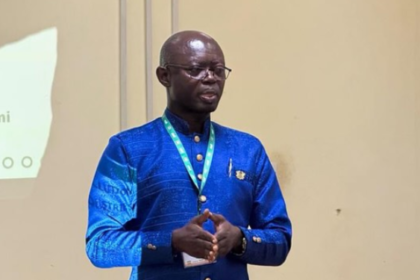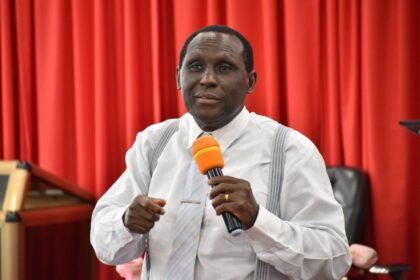In a bold call for reform, Dr. Abdul-Muhsin Baafi, a renowned Islamic scholar, IT expert, and Director of Leading-Edge Academy, has proposed a tech-driven strategy to address Ghana’s ongoing crisis of examination malpractice.
In his paper titled “Tackling Examination Malpractice in Ghana: A Technological Approach,” Dr. Baafi laid out a detailed plan for integrating digital tools to combat cheating, which he says is systemic and deeply rooted, involving not only students but also teachers, invigilators, and sometimes even parents.
“Examination malpractice in Ghana is a deeply entrenched issue. If we are to uphold the integrity of our educational system, we must adopt a multi-pronged strategy where technology plays a central role,” — Dr. Abdul-Muhsin Baafi
Common Malpractices Highlighted
Dr. Baafi identified the most common forms of cheating in Ghana’s examination system:
- Human Collusion: Involvement of teachers and invigilators in helping students cheat.
- Leakage of Question Papers: Often spread by digital networks.
- Impersonation: Candidates hiring others to write exams for them.
- Weak Invigilation: Poor supervision allowing mass cheating.
A Three-Phase Technological Strategy
Dr. Baafi outlined a comprehensive three-phase solution leveraging modern technology:
1. Before the Exam
- Biometric Authentication: To prevent impersonation and ensure only registered candidates are allowed to take exams.
- Serialized Question Papers: Assigning unique codes to track and trace leaked papers.
- Computer-Based Testing (CBT): Transitioning from paper-based to digital exams to reduce manual errors and interference.
2. During the Exam
- AI-Powered Proctoring: Using artificial intelligence to monitor candidates via webcams and flag suspicious behavior in real-time.
- CCTV Surveillance: Equipping exam halls with cameras for constant monitoring.
- Signal Jammers: Blocking mobile phone signals to prevent communication and online cheating.
- Secure Digital Platforms: Using encrypted systems to distribute and monitor assessments.
3. After the Exam
- Plagiarism Detection Software: Screening essays for copied content.
- Data Analytics: Analyzing performance trends to detect anomalies or patterns of cheating.
- Blockchain Technology: Ensuring result transparency and making tampering virtually impossible.
Collaboration is Key
Dr. Baafi stressed that technology alone isn’t enough. Success depends on collective effort and accountability.
“We need strong institutional will, sufficient funding, extensive staff training, and a cultural shift that promotes academic honesty,” he said.
A National Imperative
As Ghana works to maintain the credibility of its education system, Dr. Baafi’s tech-focused roadmap provides a clear, actionable path to reform.
“By embracing these technologies, Ghana can secure the future of its students and restore faith in its academic assessments,” he concluded.
Dr. Baafi’s proposal calls on government agencies, educational institutions, and civil society to act swiftly and boldly in the fight against exam malpractice—through technology, transparency, and teamwork.














